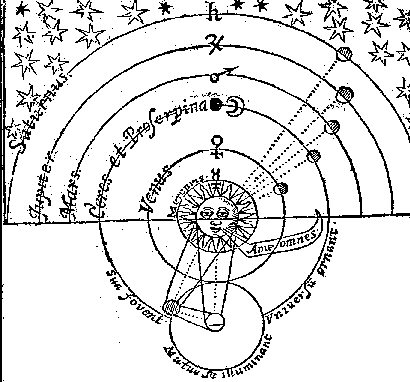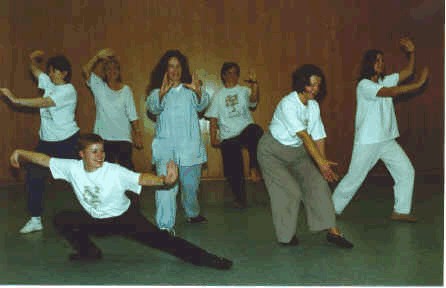“For whereas in the beginning of the world, the heavens, and earth, and Elements were settled in their natural places, the earth being left slimy and soft in many places, and then dried and stricken with the heat of the Sun, brought forth certain tumours and swellings in the surface and uppermost parts. In these tumours were contained and cherished many Putrefactions and rotten clods, covered over with certain small skins, this putrefied stuff, being moistened with dew by night, and the Sun heating it by day, after a certain season became ripe, and the skins being broken, thence issued all kinds of living creatures, whereof, they that had quickest heat, became Birds, the earthy ones became creeping beasts, the waterish ones became Fishes in the sea, and they which were mean, as it were, between all these, became walking-creatures.” — Giambattista Della Porta, The Second Book Of Natural Magick
Continuing with correspondence received during Hooting Yard's break, the estimable Max Décharné sent this:
Some years back I bought an old book called New Familiar and Progressive English and French Dialogues (With Dialogues on Railway and Steamboat Travelling, and a Comparative Table of Monies and Measure) by Richard and Quetin, published by Hachette, 1876, which I was recently looking through again, and it remains one of the finest phrase books I've ever encountered.
Some of it sounds like the dialogue from a porn film: ‘You oblige me in so willing a manner, that it encourages me to apply to you again and again’, ‘I am delighted that you make use of me so freely’, ‘You may dispose of me as you will’, ‘It is impossible to do a favour in a more pleasing manner’ 'I have never experienced such satisfaction', ‘I believe I shall go mad with pleasure’.
Then there's the section entitled ‘To express horror and fright’: ‘It is abominable, horrid, infamous’, ‘It is violating all that is most sacred in nature’, 'It is enough to freeze one's blood with horror', ‘There never was anything seen so abominable’, ‘The mind revolts from the idea of such a crime’.
Or perhaps, when visiting those tourist spots in Paris, and one feels the need to ‘express dipleasure and grief’: ‘I am ruined beyond remedy’, ‘My misfortunes are at their height’, ‘I am swallowed up with affliction’, ‘After so many misfortunes, it only remains for me to die’.
Then, select phrases for when one chances upon Michael Howard: ‘His babbling absolutely splits my head’, ‘There is something repulsive in his address’, ‘It is difficult for me to surmount the disgust with which he inspires me’, ‘Has he sworn to tease us all day?’
When training for a post in the Diplomatic Service, there's the useful section headed ‘of age and the different periods of life’: ‘Your aunt appears very aged’, ‘His brother, who is younger than he, is quite decrepit’, ‘He is in a state of extreme decay’, ‘He already has one foot in the grave’
And, of course, these random phrases which might come in useful among friends: ‘What a quantity of asparagus and artichokes!’ 'My eldest sister had the whooping-cough, the youngest had the measles, my eldest brother the small-pox, and the youngest a miliary fever', ‘Shall I help you to undress?’, ‘I will take charge of the bread and butter’.
Splendid stuff from Max, as ever. Even more correspondence tomorrow.
Here, for your edification and instruction, is a translation of the War Song of the Huitznahuac, taken from Rig Veda Americanus, Sacred Songs of the Ancient Mexicans, number eight in Brinton's Library of Aboriginal American Literature, edited by D G Brinton (1890):
1. What ho! my work is in the hall of arms, I listen to no mortal, nor can any put me to shame, I know none such, I am the Terror, I know none other, I am where war is, my work is said to be in the hall of arms, let no one curse my children.
2. Our adornment comes from out the south, it is varied in colour as the clothing of the eagle.
3. Ho! ho! abundance of youths doubly clothed, arrayed in feathers, are my captives, I deliver them up, I deliver them up, my captives arrayed in feathers.
4. Ho! youths for the Huitznahuac, arrayed in feathers, these are my captives, I deliver them up, I deliver them up, arrayed in feathers, my captives.
5. Youths from the south, arrayed in feathers, my captives, I deliver them up, I deliver them up, arrayed in feathers, my captives.
6. The god enters, the Huitznahuac, he descends as an example, he shines forth, he shines forth, descending as an example.
7. Adorned like us he enters as a god, he descends as an example, he shines forth, he shines forth, descending as an example.
An adaptation of this song, with slightly amended words, wassailed to the tune of Carry On, Wayward Son by stadium rockers Kansas, has been heard around Hooting Yard every day for the past couple of months, ever since Pansy Cradledew became an Adept of Goon Fang. Often confused with the traditional martial arts of the East, Goon Fang is - as David Bowie once said so regrettably - “a completely different kettle of poisson”. I asked Pansy to explain for readers what it means to be an Adept of this ancient mystic art. She scribbled a few words on the discarded wrapper of a toffee apple, as follows:
It is not without reason that Goon Fang is shrouded in mystery, for when the powers of both Goon and Fang are combined, the Adept enters the Plane of VerEecke, a state of being both terrifying and a bit frightening. If I tell you anything more, my Goon energy will be dissipated and my Fang plasma will curdle. The plasma is of course invisible, and mighty, but should it curdle the very stars in their heavens will explode, so I am keeping mum for the time being.
Pansy agreed, however, to share with us this photograph of a Goon Fang workshop held in a secret location:





